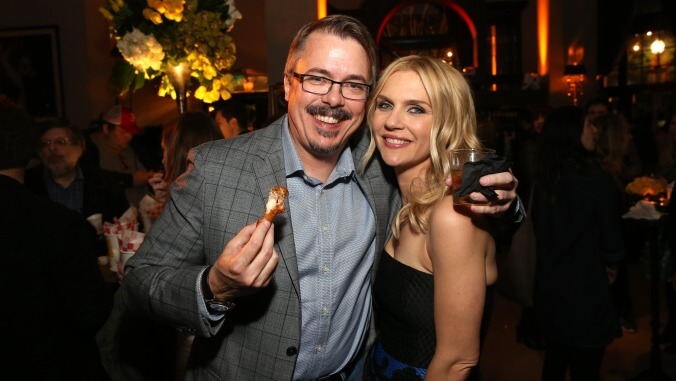After defying expectations twice, Vince Gilligan is going for a hat trick. The creator of Breaking Bad and Better Call Saul satisfied fans with two spectacular shows, put Albuquerque on the crime series map, and rarely, if ever, made a mistake. With his next show, he’s going back to his roots.
“I wouldn’t call this heavy science fiction, I would call it mild science fiction. But it does have a sci-fi element to it, at its core,” Gilligan said. “And there’s no crime and no methamphetamine. It’s going to be fun and different. I have no prediction as to how folks to react to it — whether they’ll love it or hate it or somewhere in the vast in-between. But I know it’s a story that interests me, and Rhea will be playing a very different character than she played on Saul. The weird thing is that it takes place in Albuquerque, except it’s a whole different world. There’s no overlap that I can see. She’s playing a character who is not Kim Wexler, but hopefully people will roll with that. I’m nervous. It’ll be interesting to see how folks react to it.”
The show, which remains nameless, will ramp up production again soon. Gilligan tells Variety that he and his writers were “very close to the end of breaking the first season” when the strike hit.
“We’re going to go back and finish the second-to-last episode and then get to work on the last episode,” he said. “We lost a lot of momentum, certainly. I can’t even remember where we were exactly. So I’m going to be spending this week reading through previous episodes and old notes to figure out where we stand. We’re looking forward to getting back to work. We would have been shooting already if it weren’t for the strike. The strike was a sad necessity, and we’re all glad that it’s behind us.”
Speaking of the strike, the writer has a complicated relationship with Netflix, to which he credits much of Breaking Bad’s success. “Streaming, as practiced by Netflix, rode in like the cavalry at the last minute and kept our show going. Streaming is wonderful on that level, and it’s a wonderful convenience to watch any show you want instantly.” However, even he doesn’t understand how anyone makes money off this thing either:
I don’t know how streaming makes money. How do you monetize doing 700 shows, with each one having six or eight episodes and only two or three seasons? I guess Netflix is profitable — certainly, that’s what they tell Wall Street — but I don’t know how streaming generally can be a profitable enterprise compared to the old system of ad-supported seasons of 20-some episodes or more. We know that system works and made money, without any accounting obfuscation. Netflix kind of invented this system of streaming, and everyone else had to pile in, to the detriment of the previous system. The whole thing feels like it’s teetering and about to collapse. Strike or no strike, who knows how this thing progresses. Suddenly, do we go from 700 shows back to 100? I’m generally a little pessimistic about how all of this continues because at a certain point, Wall Street stockholders demand that the companies be profitable. I don’t understand the system, but sometimes it feels like a Ponzi scheme to me. It’s all way beyond my pay grade, but there’s a lot of unrest in the labor world because people are looking around and saying, “How is this going to work in the long term?”

